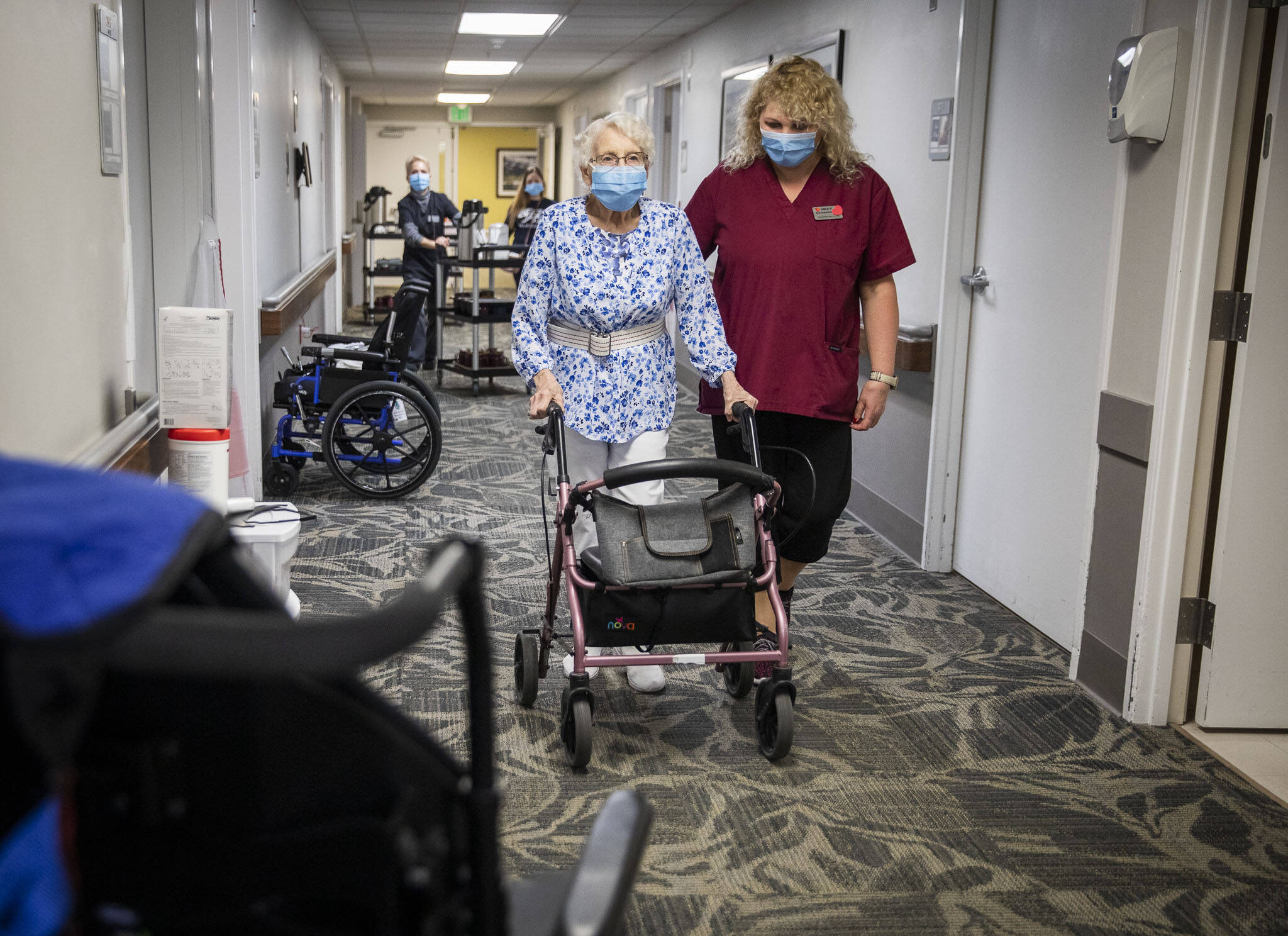By The Herald Editorial Board
The issues that result from a mismatch of supply and demand are easier to understand than they can be to resolve, and particularly dismaying when they involve a shortage of providers for health care and a growing number of those who need that care, whether in hospital, nursing facility or home settings.
The problem is no more plainly stated than this: “We need more caregivers, and we need them now.”
The warning comes from Mae Hochstetler, a Lynnwood mother of four adult children, who works part time as a paid parent home care provider for her 25-year-old son, Joshua, who is autistic and confronts epileptic seizures and behavioral health challenges. Hochstetler’s story was reported last week by The Daily Herald’s Joy Borkholder.
About 4,000 people in Snohomish County are eligible for paid care at home — supported by the state and federally funded Medicaid program — that allows Hochstetler to provide her son’s care, while working a second job to make ends meet. But for others the waiting list for a home care provider currently is at least two months, and long-term care providers in the home — with the exception of parents or adult children — are required to complete 75 hours of training, pass a certification exam and complete state and federal background checks. Current law also requires that the certification process be completed within 200 days of being hired.
At the same time, the state’s skilled nursing facilities are facing a similar shortage of workers, a shortfall that an earlier report by Borkholder found has forced those facilities statewide to leave about 6,800 of 19,386 beds empty, a 35 percent vacancy rate. That in turn, officials for hospitals throughout the state have said, has contributed to a burnout of nurses and nursing shortages because hospitals can’t transfer patients who no longer need a hospital’s level of care to skilled nursing facilities.
The solution — returning to basic terms — calls for an expanded pool of those who can be trained for care and better pay that encourages people to return or consider jobs in a range of care settings.
One part of a potential package of solutions took a significant step forward last week when the state House of Representatives unanimously adopted House Bill 1694, which would expand the certification timeline and testing opportunities for certification of home care aides and would expand the list of family members eligible to provide that care, reducing the training requirements to 35 hours for siblings, aunts, uncles, grandparents and other family members. The legislation also directs the Department of Social and Health Services to study the feasibility and costs of paying the parents of their medically complex minor children to act as home care aides.
The legislation is now under consideration by the state Senate’s Health and Long Term Care Committee.
But passage of another bill, Senate Bill 5526, is less certain. That bill would require the state to adjust Medicaid reimbursement rates for nursing facilities each year by the rate of inflation and would require a certain percentage of the boost in reimbursement go toward pay of low-wage direct and indirect workers at skilled nursing facilities. No action was taken by the Senate’s Ways and Means committee before a deadline last month to be moved to the Senate floor, but its connection to the budget could revive a similar funding proposal later in the session.
The gulf between what it costs to care for long-term care patients and what Medicaid currently provides is clear. In the last five years skilled nursing facilities in the state were left with a $600 million deficit in caring for Medicaid patients, Carma Matti-Jackson, president and chief executive for the Washington Health Care Association, told Borkholder.
The Senate bill, while offering an increase in funding, does provide assurance that a significant share of that increase — 29 percent — would address wage equity for facilities’ low-wage workers.
One of the silver linings of the covid pandemic was the recognition of the necessity to provide emergency funding that allowed “hazard pay” for health care providers and bonuses that recognized the difficult and stressful jobs performed by health care workers and made it possible for those workers to continue in those roles.
Now, having witnessed what’s necessary to encourage people to train for these vital jobs and keep them fairly compensated, state lawmakers should ensure the necessary level of support for those who need this level of care and those who provide it.
The Daily Herald Editorial Board members are Herald Publisher Rudi Alcott, Herald Opinion Page Editor Jon Bauer and Herald Executive Editor Phillip O’Connor.
Talk to us
> Give us your news tips.
> Send us a letter to the editor.
> More Herald contact information.

























